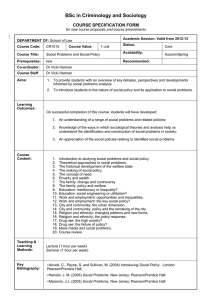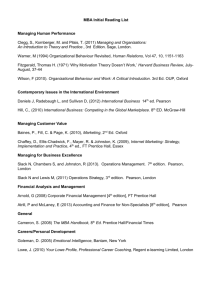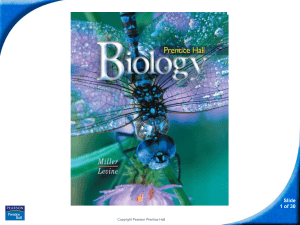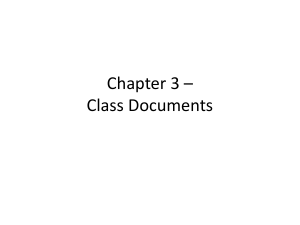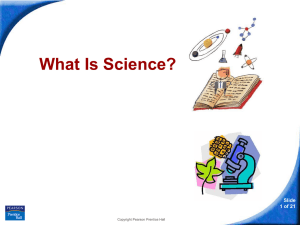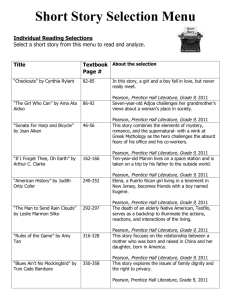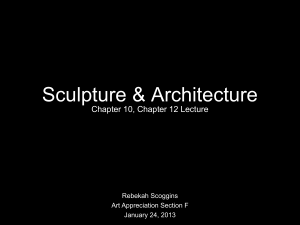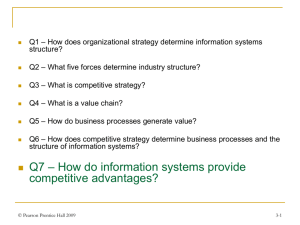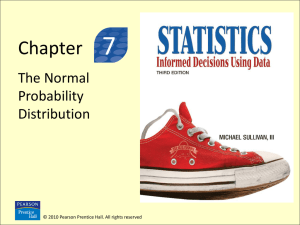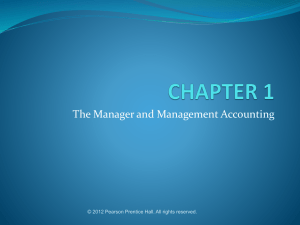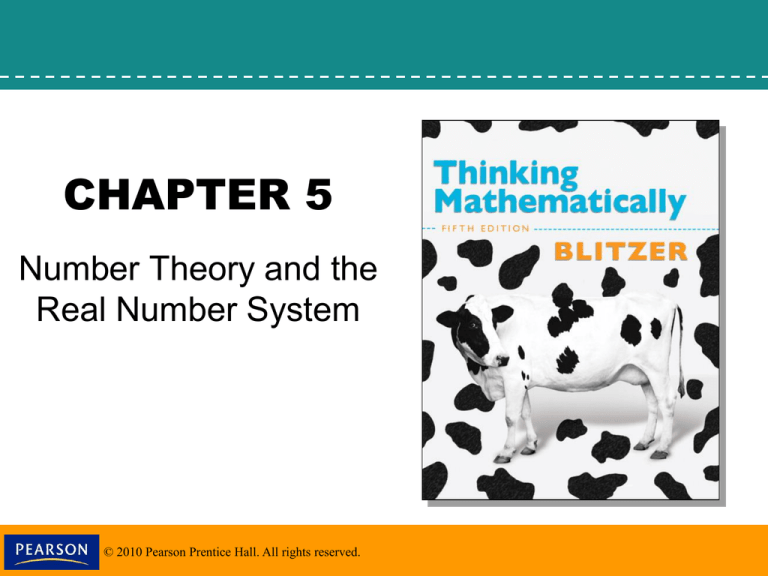
CHAPTER 5
Number Theory and the
Real Number System
© 2010 Pearson Prentice Hall. All rights reserved.
5.5
Real Numbers and Their Properties
© 2010 Pearson Prentice Hall. All rights reserved.
2
Objectives
1. Recognize the subsets of the real numbers.
2. Recognize the properties of real numbers.
© 2010 Pearson Prentice Hall. All rights reserved.
3
The Set Real Numbers
• The union of the rational numbers and the irrational
numbers is the set of real numbers.
• The sets that make up the real numbers are called
subsets of the real numbers.
© 2010 Pearson Prentice Hall. All rights reserved.
4
Example 1: Classifying Real Numbers
Consider the following set of numbers:
3
7, , 0,0.6,
4
5, , 7.3,
81
List the numbers in the set that are
a. natural numbers
b. whole numbers
c. Integers
d. rational numbers
e. irrational numbers f. real numbers
© 2010 Pearson Prentice Hall. All rights reserved.
5
Example 1: Classifying Real Numbers (continued)
Solution:
3
7, , 0,0.6,
4
a. natural numbers
b. whole numbers
c. integers
d. rational numbers
e. irrational numbers
f. real numbers
5, , 7.3,
Because
81
0,
81
81
81 = 9
because whole numbers include 0
and the natural numbers
0, 81, -7
because integers include whole
numbers and the negative natural
numbers
0, 81, -7, -¾, 0.6, & 7.3
because these numbers can be
expressed as a quotient or as a
terminating or repeating decimal
5 ,π
0, 81, -7, -¾, 0.6, 5 , 7.3, & π
© 2010 Pearson Prentice Hall. All rights reserved.
because neither terminate nor
have blocks of repeating digits
because real numbers have all
the above numbers as subsets
6
Properties of the Real Numbers
© 2010 Pearson Prentice Hall. All rights reserved.
7
Properties of the Real Numbers
© 2010 Pearson Prentice Hall. All rights reserved.
8
Properties of the Real Numbers
© 2010 Pearson Prentice Hall. All rights reserved.
9
Example 2: Identifying Properties of Real
Numbers
Name the property illustrated:
a. 3 7 7 3
b. (4 + 7) + 6 = 4 + (7 + 6)
Commutative property of multiplication
Associative property of addition
c. 2 3 5 6 2 5
Distributive property of
multiplication over addition
d. 17 (17) 0
Inverse property of addition
© 2010 Pearson Prentice Hall. All rights reserved.
10

